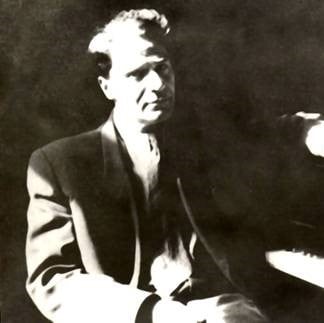
Boris Klusner
• Born and raised in Astrakhan in 1909, Boris Kljusner went to St. Petersburg in 1937 to study composition with Mikhail Gnessin at the Leningrad Conservatory until 1941
• great interest in Jewish musical culture at an early age
• served in the Red Army from 1941 to 1945
• after intercession by Dmitri Shostakovich and others, he was released from military and returned to Leningrad
• after the end of the war, he was elected to the board of the Leningrad Composers' Association, which he left again in 1961
• was about to be imprisoned in 1952 due to repeated conflicts with Soviet authorities
• proved his stance in the Soviet formalism debate and protested against the attacks on Dmitri Shostakovich in particular
• his oeuvre includes symphonies, instrumental concertos, chamber music and film music, the latter of which granted Soviet composers more freedom than the traditional genres, especially during the Stalin era
• integrated ‘Western’ techniques such as dodecaphony or the use of clusters into his expressive musical language
• liked to choose unusual instrumental combinations for his works, including electric guitar, organ and percussion
• some of his works were only premiered posthumously
• finally withdrew in resignation to the seaside town of Komarovo, where he died in 1975, the same year as Shostakovich
• Alexander Wustin wrote his piece "In memoriam Boris Kljusner “ in memory of the composer in 1977 and Sergei Slonimski followed at the turn of the millennium with ‘To the memory of Boris Kljusner’
Boris Kljusner's works with Boosey & Hawkes / Sikorski:
